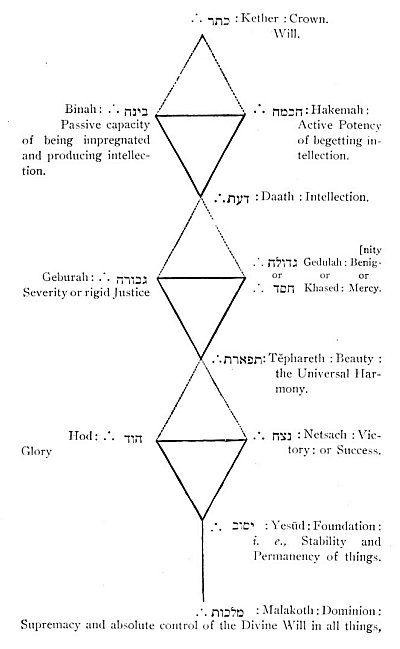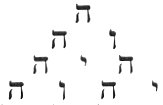p. 597
[paragraph continues] Sirius, the Pleiades, and Aldebarán, and the journeyings of the Sun, were voluntary and not mechanical to them. What wonder that astronomy became to them the most important of sciences; that those who learned it became rulers; and that vast edifices, the Pyramids, the tower or temple of Bel, and other like erections everywhere in the East, were builded for astronomical purposes?–and what wonder that, in their great child-like simplicity, they worshipped Light, the Sun, the Planets, and the Stars, and personified them, and eagerly believed in the histories invented for them; in that age when the capacity for belief was infinite; as indeed, if we but reflect, it still is and ever will be?
If we adhered to the literally historic sense, antiquity would be a mere inexplicable, hideous chaos, and all the Sages deranged: and so it would be with Masonry and those who instituted it. But when these allegories are explained, they cease to be absurd fables, or facts purely local; and become lessons of wisdom for entire humanity. No one can doubt, who studies them, that they all came from a common source.
And he greatly errs who imagines that, because the mythological legends and fables of antiquity are referable to and have their foundation in the phenomena of the Heavens, and all the Heathen Gods are but mere names given to the Sun, the Stars, the Planets, the Zodiacal Signs, the Elements, the Powers of Nature, and Universal Nature herself, therefore the first men worshipped the Stars, and whatever things, animate and inanimate, seemed to them to possess and exercise a power or influence, evident or imagined, over human, fortunes and human destiny.
For ever, in all the nations, ascending to the remotest antiquity to which the light of History or the glimmerings of tradition reach, we find, seated above all the gods which represent the luminaries and the elements, and those which personify the innate Powers of universal nature, a still higher Deity, silent, undefined, incomprehensible, the Supreme, one God, from Whom all the rest flow or emanate, or by Him are created. Above the Time-God Horus, the Moon-Goddess or Earth-Goddess Isis, and the Sun-God Osiris, of the Egyptians, was Amun, the Nature-God; and above him, again, the Infinite, Incomprehensible Deity, ATHOM. BREHM, the silent, self-contemplative, one original God, was the Source, to the Hindu_s, of Brahma, Vishnu, and Siva. Above Zeus, or before him, were Kronos and Ouranos. Over the Alohayim was the great
p. 598
[paragraph continues] Nature-God AL, and still beyond him, Abstract Existence, IHUH–He that IS, WAS, and SHALL BE. Above all the Persian Deities was the Unlimited Time, ZERUANE-AKHERENE; and over Odin and Thor was the Great Scandinavian Deity ALFADIR.
The worship of Universal Nature as a God was too near akin to the worship of a Universal Soul, to have been the instinctive creed of any savage people or rude race of men. To imagine all nature, with all its apparently independent parts, as forming one consistent whole, and as itself a unit, required an amount of experience and a faculty of generalization not possessed by the rude uncivilized mind, and is but a step below the idea of a universal Soul.
In the beginning man had the WORD; and that WORD was from God; and out of the living POWER communicated to man in and by that WORD, came THE LIGHT of His Existence.
God made man in His own likeness. When, by a long succession of geological changes, He had prepared the earth to be his habitation, He created him, and placed him in that part of Asia which all the old nations agreed in calling the cradle of the human race, and whence afterward the stream of human life flowed forth to India, China, Egypt, Persia, Arabia, and Phœnicia. HE communicated to him a knowledge of the nature of his Creator, and of the pure, primitive, undefiled religion. The peculiar and distinctive excellence and real essence of the primitive man, and his true nature and destiny, consisted in his likeness to God. HE stamped His own image upon man’s soul. That image has been, in the breast of every individual man and of mankind in general, greatly altered, impaired, and defaced; but its old, half-obliterated characters are still to be found on all the pages of primitive history; and the impress, not entirely effaced, every reflecting mind may discover in its own interior.

Moe is the founder of GnosticWarrior.com. He is a father, husband, author, martial arts black belt, and an expert in Gnosticism, the occult, and esotericism.





